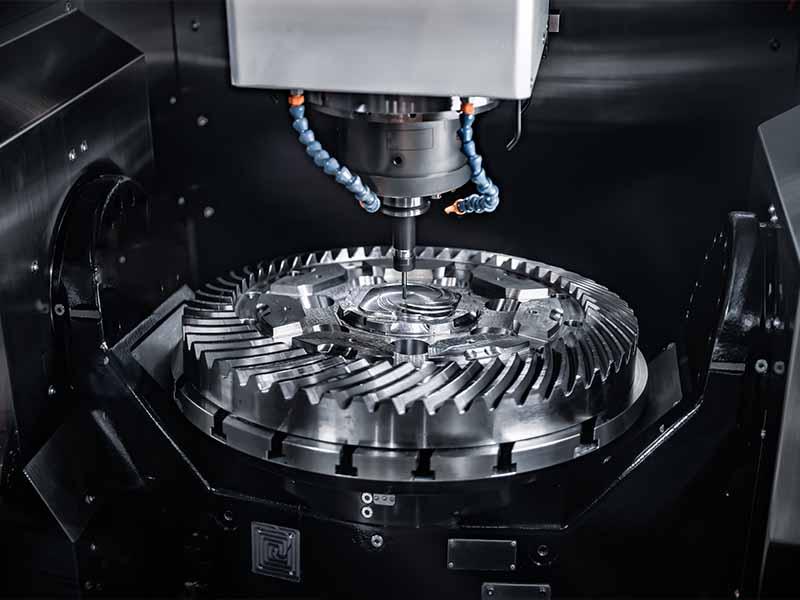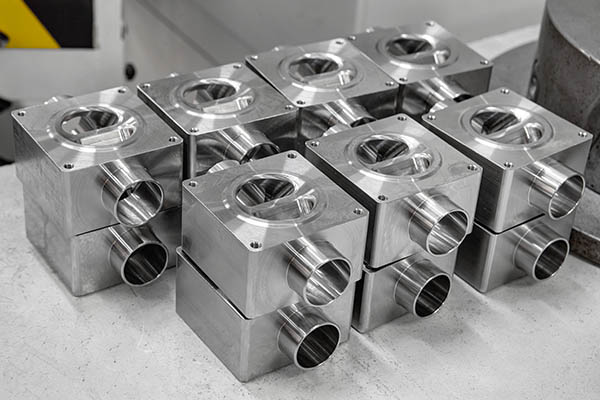CNC Machining Services: Precision and Innovation in Fashionable Manufacturing
CNC Machining Services: Precision and Innovation in Fashionable Manufacturing
Blog Article
CNC machineries, also known as Computer Numerical Control machining, has revolutionized the world of manufacturing, bringing accuracy, efficiency, and automation to the production process. It makes use of computers to cut, shape and create intricate parts as well as components made from various materials such as metal or plastic, wood and composites. Through automation of many procedures that used to require the intervention of a human, CNC machining has significantly enhanced the speed and accuracy of production, which makes the technology indispensable to industries such as aerospace, automotive electronic, medical and aerospace. The integration of computers with machining tools has opened up many new opportunities in the manufacturing of highly precise and complex components. This has improved both the speed and quality of manufacturing.
One of the major advantages of CNC machining is its ability to make complex and precise pieces with precision. In contrast to manual machining, in which precision is largely dependent on the ability of the worker CNC machines execute programmed instructions with exactness. These digital instructions, often created through CAD (Computer-Aided Design) software, let producers to make parts with accuracy as close as small amount of microns. This level of precision is vital in sectors like aerospace and medical device manufacturing where one tiny deviation could compromise the performance or safety of a product. Through CNC machined parts, producers can be sure that their product meets exact specifications, reducing the chance of defects, and the need for costly repairs.
One of the main advantages of CNC machining is its versatility to work with a vast selection of material. Whether manufacturers are dealing with tough metals like steel or titanium, or soft materials such as wood or plastic, CNC machines can be adjusted to deal with a variety of jobs of shaping and cutting. This makes CNC machining suitable for producing pieces across a variety of industries that range from medical devices to aerospace components, to automotive and consumer electronics. Being able to process complex geometries with high precision has also made CNC machining the go-to method for creating intricate parts that would be a challenge or even impossible to create using conventional techniques.
One of the major elements of CNC machining is the utilization of computer-aided designing as well as computer-aided production software. CAD software allows engineers to design precise 3D designs of the components that will be manufactured, and CAM software can translate these plans into machine-specific instructions. This seamless integration between design and manufacturing ensures that the finished product is in line with the initial design specifications. Additionally, the CAD/CAM software allows rapid prototyping, allowing manufacturers to quickly test and refine their designs before committing to massive production. Ability to change designs and create prototypes provides companies a competitive edge in industries where innovation and speed to market are vital. To get further details please visit www.premiumparts.com/services/cnc-machining
One of the challenges associated with CNC machine machining is the initial setup cost. The cost of investing in CNC equipment and software needed to run it is costly especially for smaller enterprises. However, the long-term benefits of CNC machine machining, such as lower cost of labor, improved production effectiveness, and improved product quality--often outweigh the first investment. Many companies also offer CNC machining services to businesses which may not have the resources to invest in their machinery, allowing small-scale manufacturers to take advantage of the technology without the upfront costs. While the need for CNC processing continues to rise and the price of machines and software is expected to fall, making it accessible to a wider range of companies.
Another obstacle in CNC machining lies in the programing and setting of CNC machines. While CNC machines reduce a significant amount of the manual work involved during the production process however, they require experienced technicians to create and input the necessary programs. These technicians must have expertise in CAD/CAM (Computer-Aided Design/Computer-Aided Manufacturing) software and understand the specific machining requirements of each project. Programming errors can create defective parts or materials being wasted, as well as the machine being down for a long time. Additionally, the initial setup of the machine could be lengthy, especially with complex projects that require numerous tools or operation. When the machine has been properly programmed and set up, it can produce parts in a remarkably fast time and precision which reduces the chance of errors in subsequent runs.